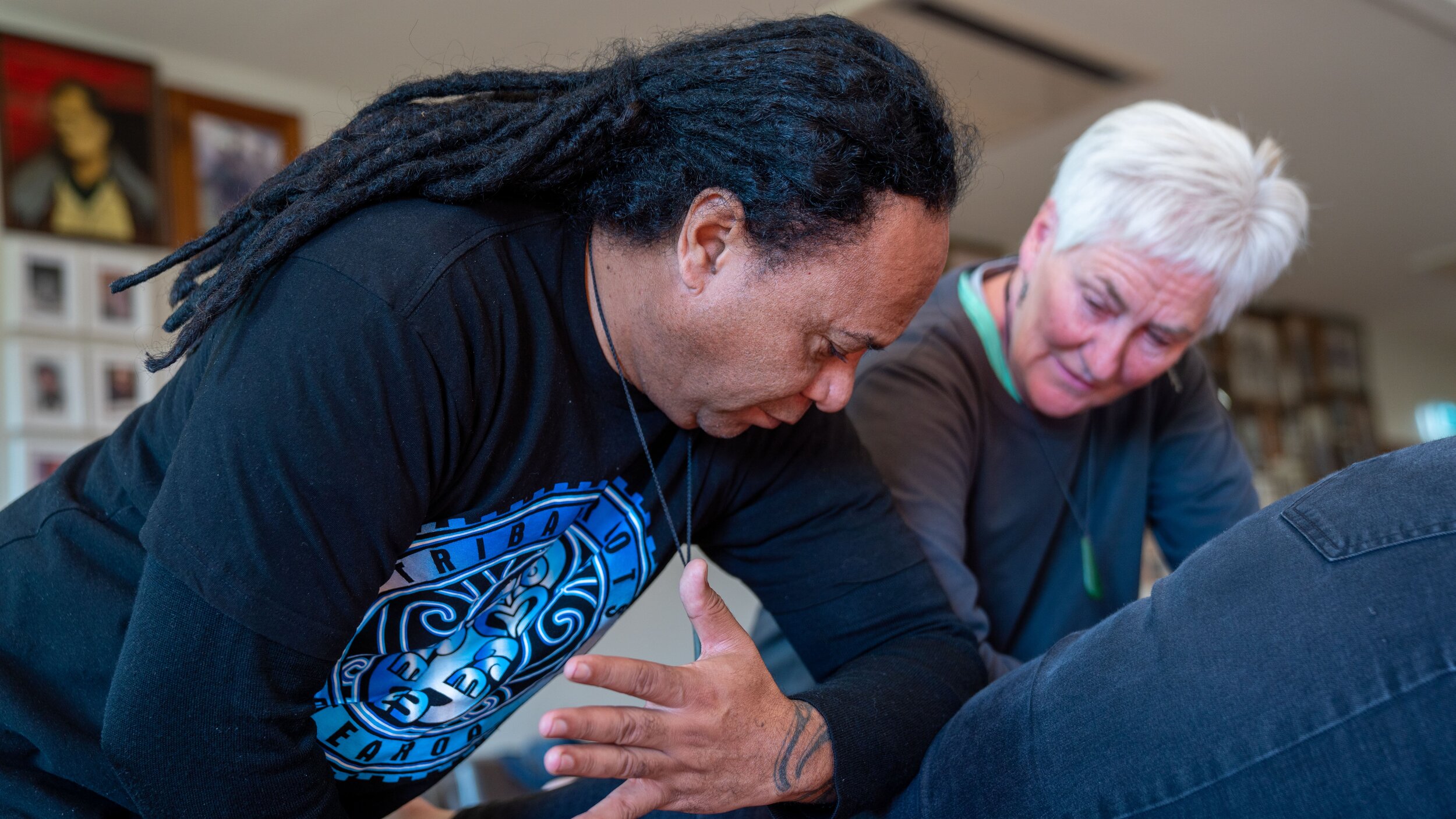LOGIN:
Ruatau Perez and Hannah Livingston have been introducing whānau to the philosophies and practices of traditional Māori healing for over twenty years but they never tire of seeing their wānanga participants reconnect to their culture and customs.
“We know from personal experience that through wānanga and traditional healing practices, whānau can experience a deep, life-changing connection to self, to their whānau and to their community,” says Ruatau (Tūhoe, Ngāpuhi).
“And as they become reconnected to their whakapapa, they start to realise their own inner strength and potential.”
Ruatau and his partner, Hannah (Ngāpuhi), moved from Auckland to Ōtautahi, where, earlier this year, they established Te Areteatea’s Whare Hauora.
“We’ve been overwhelmed by the positive response and requests for wānanga we’ve had. Whānau are looking for a different approach to health and wellbeing – an alternative to Western medicine, which is failing many of our people,” says Hannah.
“With the resurgence of our traditional ways, people are starting to embrace practices like rongoā Māori and our aim is to provide a safe environment for them to learn practices like mirimiri and romiromi, and in turn, inspire them to develop their own spiritual awareness and their ability to self-heal.”
For Ruatau, the wānanga are about empowering people to change their lives for the better and he looks to his own path and to Papa Hohepa Delamere (Papa Joe) (Te Whānau-a-Apanui), who taught him for ten years, as an ongoing inspiration.
“Papa Joe was a gifted tohunga raised in the ancient ways. He started teaching in 1998 and I joined him in 2000. He was fully immersed in mātauranga Māori and what he taught me from the age of 24, changed my life,” he says.
“I see those same changes in people when they go through our wānanga journey, and it’s a beautiful thing to see.”
Ruatau and Hannah are excited that recent funding through Te Pūtahitanga o Te Waipounamu in partnership with Pharmac, has enabled them to establish a dedicated Whare Wānanga in Christchurch, where they can run wānanga and people can go for one-on-one treatments.
“It also allows us to open a community clinic, where those who have attended our wānanga can continue their training. The clinic will be open to the community so anyone can receive treatment for a koha,” says Hannah.
“It’s enough to create ripples. It’s a trigger – a way for whānau to start thinking of new ways of being."

From their Ōtautahi base, the couple aim to spread the teachings of Papa Hohepa Delamare through wānanga like the one held last month in Arowhenua.
“This is a foundation course that covers the dynamics of karakia, takutaku, kaupare and whatumanawa,” says Ruatau. “It’s about developing spiritual awareness and it provides the tools for whānau to understand and stimulate their spiritual growth, not only through mirimiri and romiromi but also within their everyday lives.
“Our holistic view is that our physical state is affected by our wairua and mauri and by incorporating mirimiri and romiromi, we hope whānau will increase their awareness and bring balance back to their lives,” he says.
The Arowhenua level one wānanga is the first of a four-level certification course enabling whānau to become mirimiri/romiromi practitioners, alhough for many, the first course is often enough to inspire significant change.
“It’s enough to create ripples. It’s a trigger – a way for whānau to start thinking of new ways of being.”
“It’s then up to them to decide if they want to make the journey,” says Hannah.“But even if they only come out of the wānanga inspired to make one small change in their world, that’s a start. For us, it’s about seeing whānau take risks knowing they are supported by their tīpuna.
It’s about living from the heart and not according to how society determines success.”
Ruatau remembers walking in those shoes himself, so he is doubly invested in seeing others reach their true potential.
“If we heal ourselves, we give future generations a better chance to thrive. Our job is to give people the tools and the support they need – to show them that they are their own hero.”
Notifications